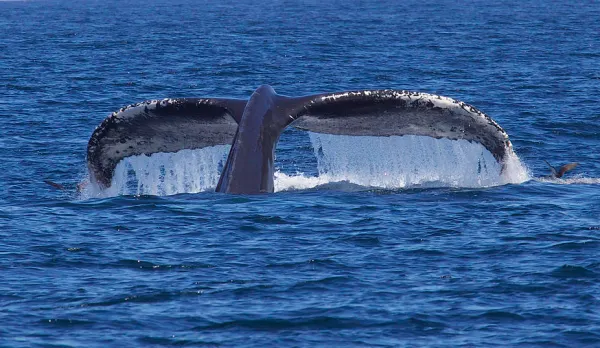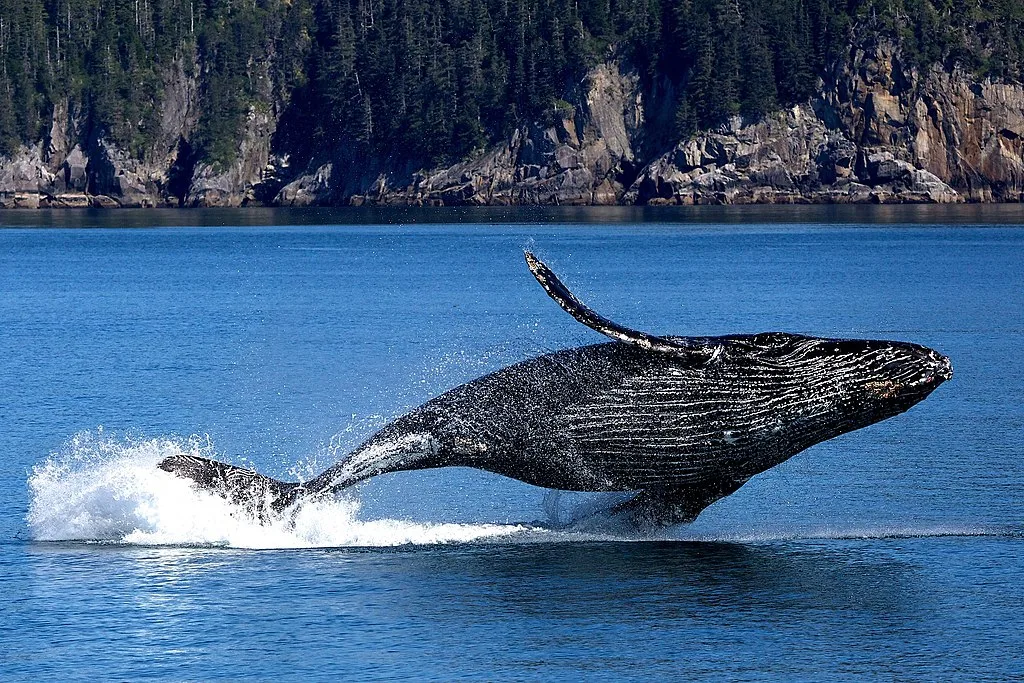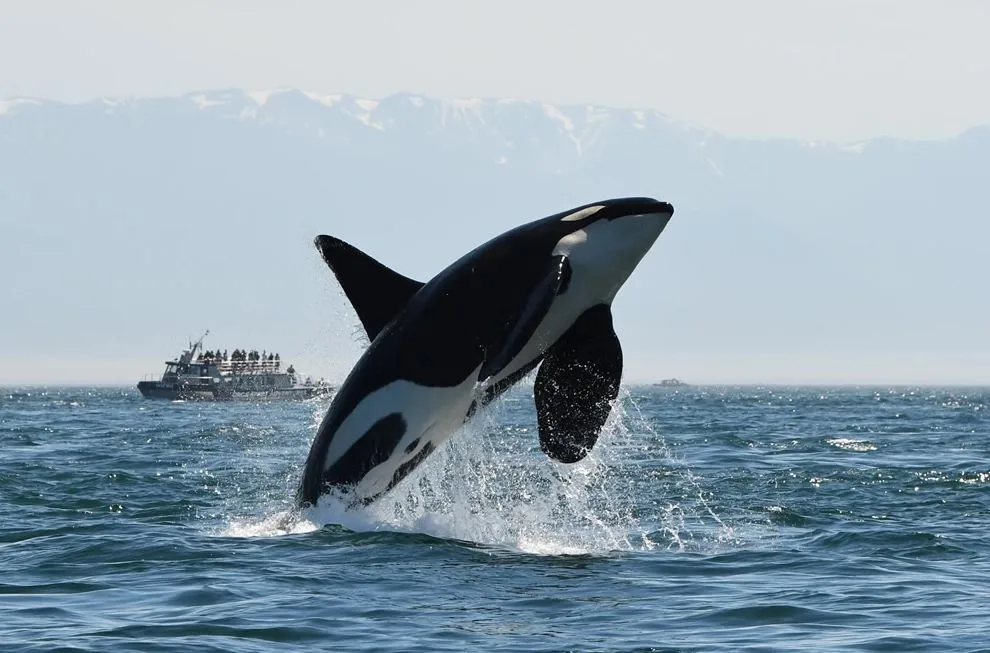
Whales are thriving amid COVID-19 shutdowns. What happens after?
Ocean noise, a major factor in the decline of whale populations, has plunged amid the ongoing pandemic.
We have seen the pictures and videos of wildlife coming out to play as the people stay away. It seems COVID-19 lockdowns across the world have offered some respite to the natural world.
Goats have taken over towns in the U.K., elk are roaming the streets in Banff, Alta., and bears are roaming freely in California's Yosemite National Park. While all that is happening on land, scientists also believe that the shutdowns are having a positive impact on marine life, especially when it comes to whales.
Research has shown for quite some time the negative impacts that ocean noise has on whales. Ocean Wise scientist Dr. Valeria Velgara studies beluga whales in the St. Lawrence, where they are endangered and says the three main threats to the population are a shortage of prey, high levels of contaminants, and ocean noise.
"They used sound for every aspect of their lives. They are very much acoustic animals like we are visual creatures," she said. "They use sound to communicate to find their way around in their environment and to find food. So noise from a range of human activity really makes all of these things difficult."
Dr. Velgara said loud ocean noise can make it virtually impossible for newborn beluga whales to communicate with their mothers.
"When beluga calves are born, they make very soft sounds. They don't know how to speak loudly and they don't know how to produce high frequency, so this means they speak at the same frequency as most of the acoustic energy in vessel noise," said Dr. Velgara. "This means the sounds that they produce are easily masked by vessel noise. So if mothers and calves separate, the mother might have a much harder time hearing the calf that is trying to find mom."

Scientists say the drastic decrease in ocean noise has been beneficial for whales. Image: Wikimedia Commons
Belugas are not the only ones being impacted by ocean noise. On the other side of Canada in British Columbia, Southern Resident Killer Whales are also endangered. It's estimated that there are just over 70 of the whales left in the Salish Sea, and once again, another major threat to their population is ocean noise.
According to the World Wildlife Fund, boats in the Salish Sea make it difficult for the orcas to use their echolocation, which allows them to find and hunt salmon.
However, now COVID-19 has put a pause on boat traffic. Cruise ships that would usually be docking in Vancouver this time of year are nowhere to be seen. In Canada, all commercial marine vessels that carry more than 12 passengers have ceased non-essential activities like tourism and recreation. Our neighbours to the south, Northwest Seaport Alliance, the fourth-largest container gateway in North America, had a 12 per cent decline in container volume from January to February, according to Dr. Velgara's blog.
Dr. Velgara believes that all of these shutdowns will offer a reprise for the whales. She has compared what is going on now to a study that was conducted after the terrorist attacks of 9/11.
"There were some scientists that were recording the underwater world at the time and they were also collecting poo samples from North Atlantic Right Whales to look at stress hormones," she said. "They put both sets of data together and were able to figure out that the whales were a lot less stressed out."
The scientists were testing for glucocorticoid hormones, which exist in the scat of whales and are associated with stress levels. They found that these stress hormones were a lot lower during this window of time. While there hasn't been any direct study done yet on how COVID-19 is impacting whale stress levels, Dr. Velgara believes it will have a similar impact.
"I think it will definitely offer a respite to the whales. It means less stress finding food," she said. "It means when you echolocate on prey, you probably have a higher success rate. It means when you vocalize to communicate with your companions you don't have to scream over the noise."

Ocean noise has been a factor in the decline of killer whale populations in West Coast waters, according to researchers. Image: Whale Institute/Dave Ellifrit.
But what happens when life goes back to normal? When the cruise ships return for the summer, when the cargo vessels return, and when the whale watching boats head out in search of orcas, belugas and humpbacks?
"I really hope that the world and that humanity learns from this experience on more than just one level," said Dr. Velgara. "In terms of noise, the lesson is very obvious, it ceases to occur when you don't produce it and whales do better. It is a very measurable consequence. Maybe this is going to make us think about responsible actions to inject less noise into our marine environment. By this I don't mean stopping all activities, but conducting these activities responsibly."
Dr. Velgara gave an example of the Port of Vancouver, which offers discounts on harbour fees for ships that have low noise emission. She said more incentives like this for vessels and boats to use quieting technologies would help reduce noise long term.
On top of that, she added enforcing speed limits and creating more acoustic sanctuaries where the whales can escape boat noise would also be beneficial for stress levels and population recovery.
